When my oldest daughter was 17 months old, lying half-nekkid on the diaper change pad, she grabbed her genitals and said, BUTT!
“No, honey,” I corrected. “That’s your…vagina.”
Cough.
Gulp.
Eep.
Deep breath in…
Exhale.
Phew.
Why was it so hard?
It made little sense, if you know me. I was raised with the kind of open, feminist, communicative mom who said vagina and penis the way other moms might say peanut butter and jelly. We had a copy of Our Bodies, Ourselves sitting on our coffee table at times. All things reproductive and anatomical were discussed in our home with acute candor; let’s just say my mother felt absolutely no hesitation in handing out ob tampons out at my fourth birthday party so that my friends could dunk them in water and see what happens.
(Okay, there’s a little more to the story than that, as Spawned listeners know – as a weird pre-adolescent tradition, we used to hand the giggling birthday girl a tampon under the table, purchased from the vending machine in the ladies’ room at The Ground Round. My mother caught it, and her response was, why pay for a quarter for it when we have them free at home?)
It’s kind of ironic that having grown up in an environment where menstrual products were acceptable birthday party favors, that so many years later, I was still a little uncomfortable talking about girl parts and bodies with my own daughters.
It’s not a petunia! Or a hoo-ha. Or a minnie.
When my girls were little, they had a wonderful sitter who happened to use the euphemism, “petunia.” My girls picked it up quickly, and that’s when it became abundantly clear to me that I wanted to be the kind of mom who talked to my kids honestly about their bodies.
I want them to feel they are able to talk to me about everything, too. And that also meant acknowledging I still had some of my own discomforts to overcome.
Like saying, vagina.
Vagina vagina vagina.
See? I’ve come a long way since then!
If that freaks you out a little, makes you giggle, makes you squirm, hey — no judgments. I get it. But I’ve spent so many years reading about the ways that honest talk benefits kids — and girls in particular — when we’re discussing their bodies and all the wonderful (and okay, sometimes messy) things those bodies can do, from menstruation to sexual function.
So I’m happy to have this frank discussion and share these tips on behalf of our partner THINX (BTWN), a new line of absorbent underwear designed specifically for young people with periods.
Basically, THINX (BTWN) are just like the THINX you may already know and love, only smaller. For smaller women.
– You can oder THINX or THINX (BTWN) underwear through this link –
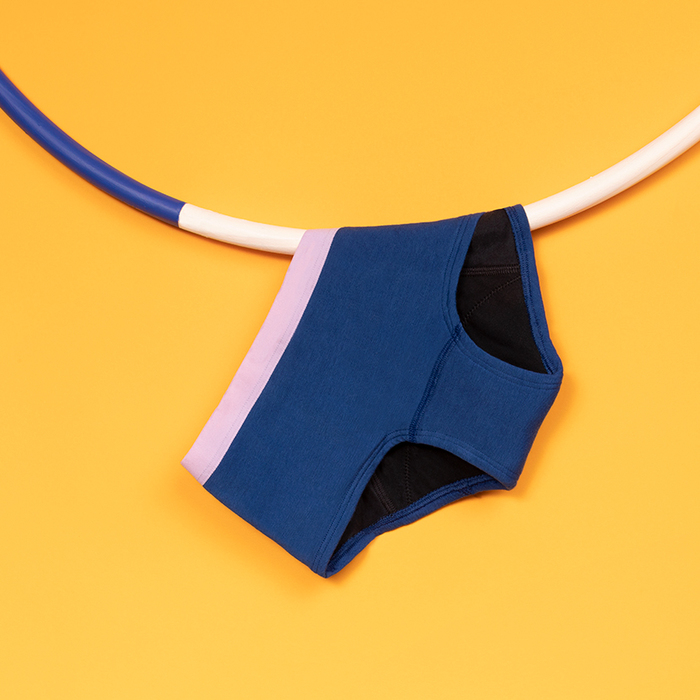
THINX (BTWN) are awesome. Just so you know.
We’ve got a lot of fans of classic THINX here at Cool Mom Picks — including some of our own daughters — which is why we’re just so happy for all they’re doing to make periods less stressful, make leakage less common, make honest conversations so much easier for all of us.
5 reasons to talk to your girls honestly about their bodies
This is expert advice, parents! It’s legit, research-based, and important.
Maybe it will give you a little nudge to change the way you talk about some things. Maybe it just enables you to give yourself a pat on the back for something you’re already doing well. Parents need more of those, right?
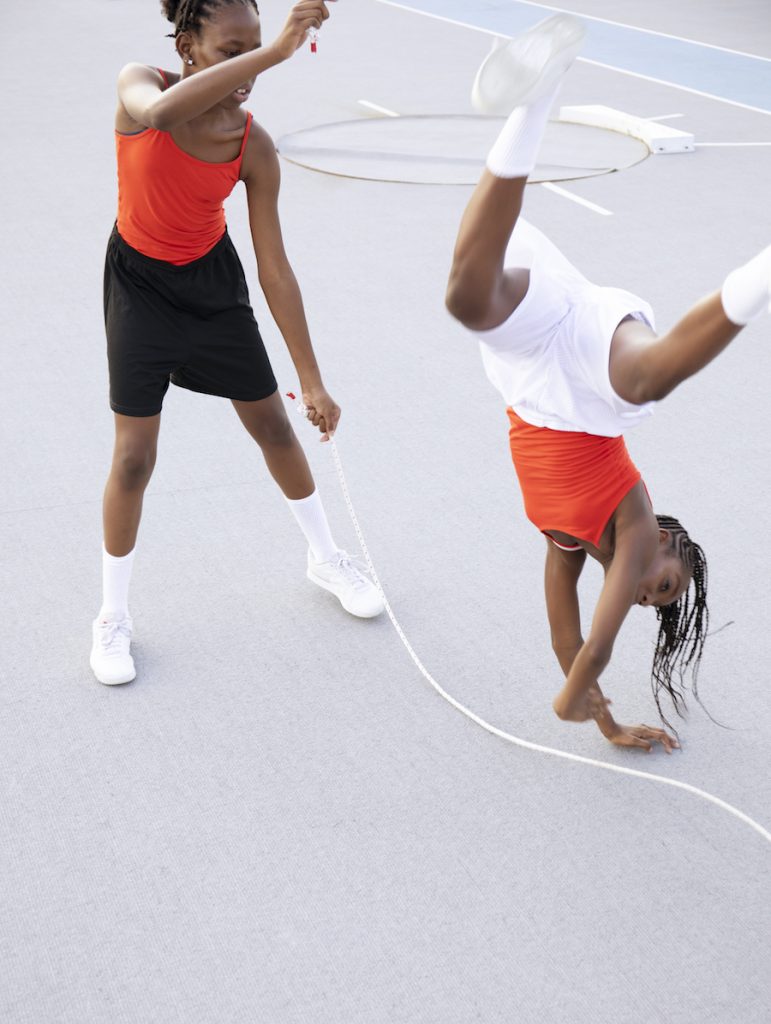
1. Honesty helps parents and kids connect
Have you ever said, “I want you to feel like you can tell me anything?” Well, me too. (Because I’m not a regular mom, I’m a cool mom. Ha.) But kids are smart. If they don’t think you’re willing to talk about all tough topics with them with honesty, facts, compassion, and understanding, they’re not going to feel as comfortable bringing up those tough topics themselves.
Hey, my kids have laughed at my tampon story for years. And I truly believe that now that I have a tween and teen myself (gulp), that kind of candor has enabled them to open up, trust me, and share their own embarrassing or difficult moments with me too.
But I won’t share any of them here with you. Because, trust.
2. Euphemisms create shame, and no one wants that
“Private parts” mean that we have parts that are not for the public to touch; not that they are “private topics” not to be discussed. But it’s pretty clear we’ve gotten those two things kind of mixed-up over the years.
I love this article from TODAY Moms that shares great info from Dr. Bob Sege, director of the division of family and child advocacy at Boston Medical Center. He equates using proper terminology with destigmatizing sexuality, saying, “a child should view their entire body as healthy and there’s no particular part of their body that’s shameful.”
Yes!
A nostril is a nostril. We don’t call it your “face hole” or “your funny nose bits” just because nostril is a weird word. Well, a vagina is also a vagina. Your period is your period. Menstruation is menstruation. And yet the number of euphemisms for lady bits (including, uh, “lady bits”) is remarkable.
I’ve even seen parenting message boards on which moms literally ask for “nice names” to use for a vagina. Because…”vagina” isn’t nice? What kind of message does that send?
That said, whether you feel comfortable distinguishing the various parts of the vulva with younger kids is up to you. I know women who are sticklers for proper terminology. Then there are women like writer/activist Lindy West, who argues that vagina has become the colloquial term for the entire region, and she definitely has a point.
I fall somewhere in the middle. I know that we all use lots of generalizations with younger kids — we don’t separate the periumbilical region from the lower abdomen, we just say “belly.” But I do believe that as our kids get older, it makes sense to talk about the different parts that make up the vulva, and what each of those parts do.
3. Most euphemisms for women’s genitals are negative
This chart from Feministing breaks down lots of common euphemisms for vagina by category. It really puts into perspective how many of them are negative (spoiler: most of them) and those connotations definitely have an impact on how we perceive our own bodies.
It’s also kind of disturbing how many of these terms make vaginas seem gross, scary, or simply a place to put a penis. Nope nope nope.
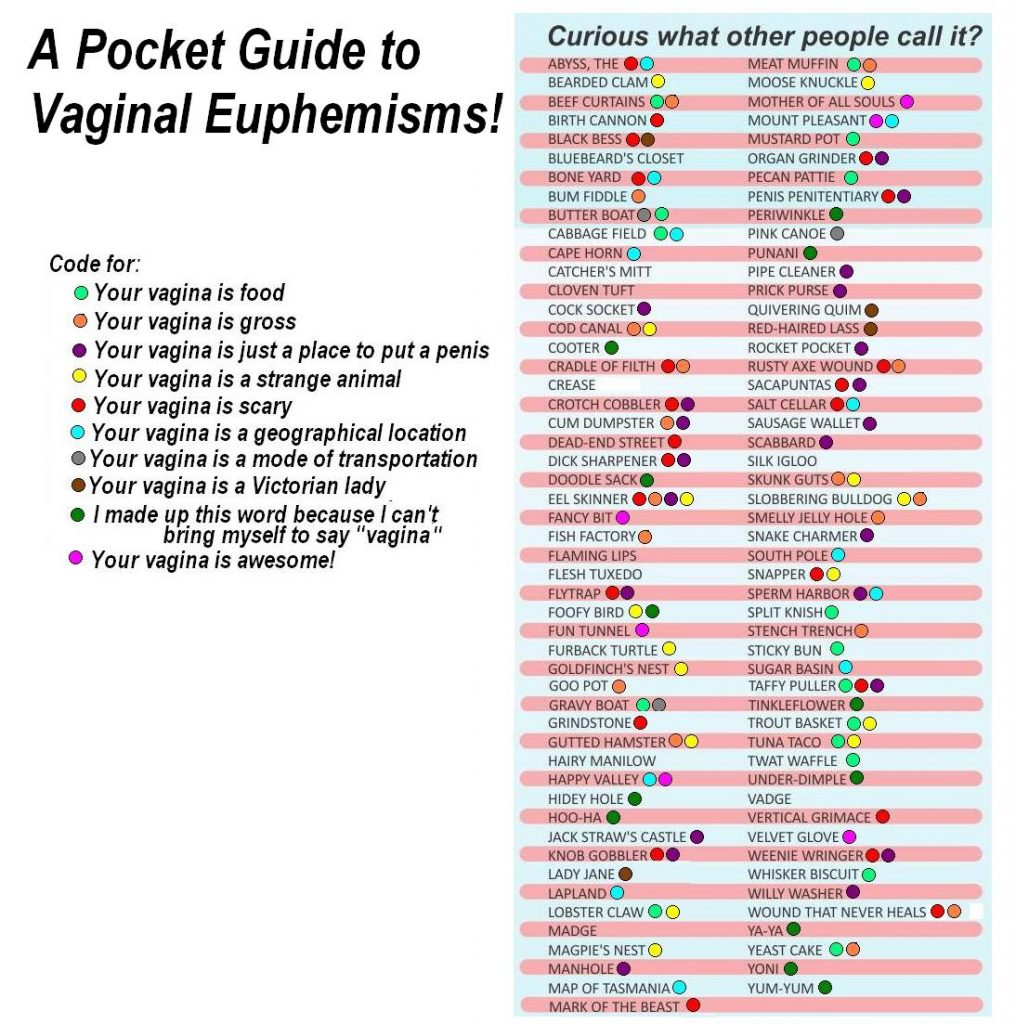
via Feministing
While we’re on the subject, I have never liked menstruation euphemisms like “Aunt Flo” or “Code Red.” Period works just fine. And if you think about it, most of the slang about periods are pretty negative too. Anyone have parents or grandparents who called it “The Curse?” Yeah…not so good.
Hey, if it weren’t for my period, I wouldn’t have kids! That’s not a curse at all.
PS I love that on the THINX (BTWN) website, it says in big bold letters, UNDERWEAR FOR YOUNG PEOPLE WITH PERIODS. Because that’s what a period is called. #Facts
—————
About our sponsor
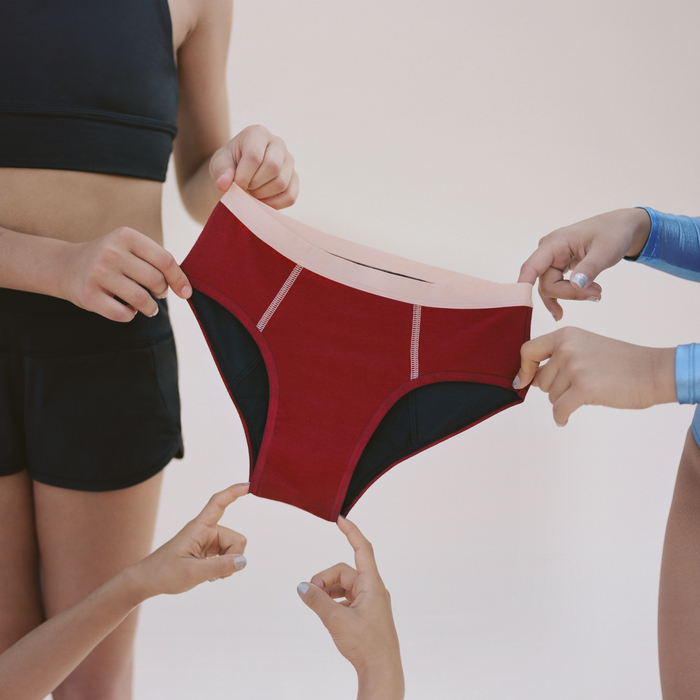
Over the past 4 years, cult-favorite THINX, the innovative period solutions company, has helped thousands of adults around the world feel better about their flows. Now there’s THINX (BTWN), a new line of absorbent underwear designed specifically for young people with periods.
THINX (BTWN) was created so young adults — and their parents (hi!) — can be better prepared for this new phase of life.
This line of reusable, machine-washable, organic cotton underwear is made with period-proof tech to absorb menstrual flow, and comes in a smaller size to fit younger bodies perfectly.
They also come in three styles, two colors, and one cute polka-dot pattern.
THINX (BTWN) are absorbent and leak-resistant so that girls can wear them alone on light days, or if they have a heavy menstrual flow, with other period products for more protection. That way, leaks don’t stop teens from living their lives and doing whatever it is they want to do.
Order THINX or THINX (BTWN) underwear directly through this link. Making it easier for you!
—————
4. Proper terminology encourages body positivity
There’s such a fantastic trend right now among young women toward body positivity and self-love. My thirteen-year-old daughter talks about topics like body shaming, and I know I had never considered such a thing at her age. The challenge is though, the body positivity movement (at least among teens) is most focused on weight and body shape — not so much our sexual organs and overall sexual health.
It’s getting there, but not quite there yet.
Want your kids to be body-positive? Include sexual health, menstruation, and anatomy in the conversation.
Australia’s Essential Kids has a helpful piece with quotes from self-esteem expert and author Anea Bogue. She describes that research indicates “girls who become informed about their bodies early, including the accurate names for their genitalia, have better body awareness.”
She also explained that “when we create fear in girls about their bodies, they become much less likely to stay connected to it [or to] believe they are in charge of it.”
Don’t you want your girls to be in charge of their own bodies? I definitely do.
5. Understanding our bodies has tangible health and wellness benefits
Turns out that two-thirds of women are embarrassed to say the word “vagina” to their own doctors. That’s pretty bad, if you think about it. Doctors!
But as parents, we have the ability to chip away at the problem for the next generation. And it’s important.
If girls are terrified of even talking about their bodies, let alone describing parts of themselves with more detail, they may be less likely to seek medical help when they need it.
Think of it this way: it’s a whole lot harder to ask a doctor questions or seek help from a healthcare provider (or even a parent) if you don’t know what a urethra is, what ovulation is, or what vaginal discharge is (and that it’s a normal and healthy part of life as young woman, even before you’ve started menstruating).
If a doctor asks your daughter whether her vulva is irritated, for example, or for details about her period flow, she needs to be able to understand what the question means — or at least be brave enough to ask for more information, instead of answering incorrectly.
It’s so important that we give our girls the words to describe their bodies, because they will be talking about them with their doctors — without you in the room — soon enough, if they’re not already. And as they get older, they should be able to talk about these things candidly with their partners as well.
6 Knowing proper terminology can keep girls safe and healthy in a worst-case scenario.
Sexual violence prevention educators, including like Laura Palumbo, who’s interviewed in this helpful Atlantic article, share an increasingly important fact-based reason for avoiding euphemisms for our bodies: When kids have proper language for their bodies at their disposal, it can discourage predators.
Abusers are most likely use a “cute” euphemism with kids. And should a child ever have to describe abuse, accuracy makes a big big difference in the credibility of their reporting.
“We need all adults to be partners in teaching healthy childhood sexual development,” Palumbo said, “and square one is body parts.”
The Atlantic article also described studies that indicate when children feel comfortable learning and talking about bodies in churches and schools, they increasingly feel they are in a safe environment to seek an adult’s help or protection. And of course, all of us want to know our children are in good hands when they are out of ours, and that they always have trusting adults they can go to, should they ever need help of any kind.
So…let’s get talking!
If kids are embarrassed — or worse, they think they’ll get in trouble — by asking questions or speaking about their bodies, their periods, or their overall sexual health, they’re less likely to seek help from us. And as uncomfortable as it may be for lots of parents to talk about this stuff, one thing I think we can all agree on is that it’s our number one job as parents to keep our kids safe and healthy.
In which case, it makes perfect sense to destigmatize sexual health topics, get honest, get frank, and start talking. Only good things can come of it.
Thanks so much to our amazing sponsor, THINX (BTWN), for making it easier to keep our girls healthy, confident, active and informed. All things we value — a lot.


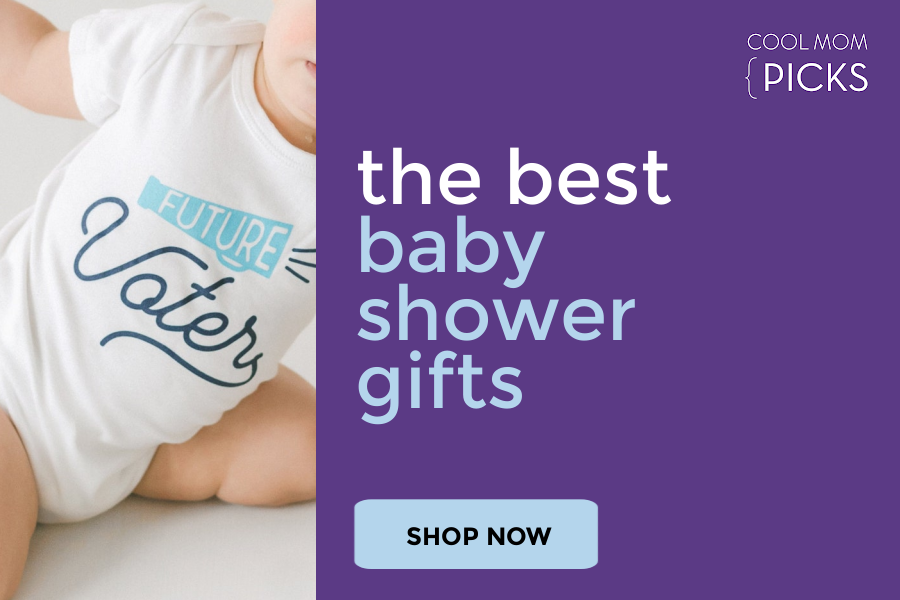

Great article! And thank you for the heads up about THINX (BTWN) – I will definitely buy these for my daughter.
This is amazing. I have a pre-schooler and she confused her vagina for her butt as well. At around 3 years old she was very vocal about body parts-genitals included-much to my family’s discomfort. They had advised me to redirect her, distract her etc from conversation about her body and it’s parts. But I want her to grow up without the shame that I had growing up. I was embarrassed about my body to a degree that I was dreading telling my mom that I started my period. I never asked about sex or talked about discharge or discomfort etc. I didn’t even go to the GYN until my mid-twenties! I don’t want my daughter’s experience to be anything like mine. Thanks for this article.
My friend has been telling me about Thinx for a year now – I just bought my first pair! And as a mom of two girls, I love this post. Even though one daughter can only pronounce it as “bagina” or “gegina”, there’s no confusion over this important body part.
It is a VULVA not a vagina. It’s pretty hypocritical to harp on people using the wrong terminology when you are using the wrong terminology.
Maybe reread #2? We’re on the same team.